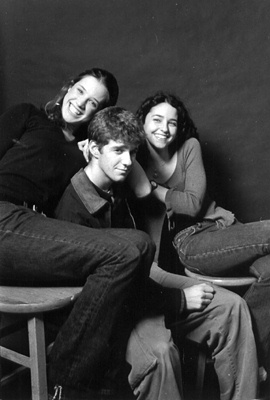All Nonfiction
- Bullying
- Books
- Academic
- Author Interviews
- Celebrity interviews
- College Articles
- College Essays
- Educator of the Year
- Heroes
- Interviews
- Memoir
- Personal Experience
- Sports
- Travel & Culture
All Opinions
- Bullying
- Current Events / Politics
- Discrimination
- Drugs / Alcohol / Smoking
- Entertainment / Celebrities
- Environment
- Love / Relationships
- Movies / Music / TV
- Pop Culture / Trends
- School / College
- Social Issues / Civics
- Spirituality / Religion
- Sports / Hobbies
All Hot Topics
- Bullying
- Community Service
- Environment
- Health
- Letters to the Editor
- Pride & Prejudice
- What Matters
- Back
Summer Guide
- Program Links
- Program Reviews
- Back
College Guide
- College Links
- College Reviews
- College Essays
- College Articles
- Back
Costae
I read “costae” as “kos-tay” once in a mid-afternoon biology class
and people laughed, swapped golden sticky notes that
were scribbled with knife-like understatements. My Asian voice
ascended the room slivered by mockeries plastered in
silver camouflages, bracketed by the pallid deluge
they instigated—the waters they call superiority.
But, the teacher, who was stern, unmoving, unaffected,
bellowed “cos-thai”, and suddenly everyone stuffed an insufferable silence
down their throats, like vacuum cleaners sucking dust in unwillingly,
and voices were trapped in the impenetrable walls of ribs and heart. But, while
the silence lasted, noises grew stronger inside of us, and all the bubbles,
not yet blistered by wind or noises or interruptions,
thought they could draw all worldly fares, both past and present, into their confines.
Therefore, insidiously, they breathed memories and instances that drew shapes
inside of them, and for the woman standing in front of the dark, dark board,
hers started to draw a cross in the middle of the bubble covered by stars,
wistfully, she who still had pensions of dearths of love, family
and coloured stripes between her hair that she made up some weeks ago
(it was white, until she saw them as petty yesterdays still manifested
on her thirty-year-old-body, so she dyed them blue,
and glued them along the slight curvature of her face),
grew silent along with us, but her face squished into a mess.
I guessed we were all there: there, in a continuous,
non-vesicated warp of time came back through the fifth dimension of life
to set her in the final nonexistence: she was with everyone she knew
who were in Heaven or Hell because of the words, actions
and ideas people used to seed their beliefs into the earth
grew enough to rest in the sky turning pale blue; and those they planted died,
turned black, and those pigments sprayed all over her skin, her hair, and
slowly, her dress. Her language turned dark like currants,
which she always pronounced “coo-rants” until she reached her mid-thirties
when, she told me later, few men and women crackled with comments
of her supposed-American identity, and I thought, what could she have done?
The best she could do, as always, is to bow forwards, slightly,
but keeping herself still nonetheless—because in honour of her past
she needs to look still like an erected tombstone
with engravings facing upwards and not to us;
He needs to hear the words she wants to get across the border
through her cancerous lungs. Just then, when most of us thought
she was leaving us to self-reflections that was too hard to do,
she gradually faced towards us and unhurriedly, she repeated,
“kos-tay”, “cos-thai”, “cos-tai”, again and again, as if she was sorrowful, wretched, unhappy,
but suddenly happy, ambivalent, and senseless
because that is the same order everything came in—from wrong to right,
until the day the language pierce us again, so we are back from right to wrong.

Similar Articles
JOIN THE DISCUSSION
This article has 0 comments.
